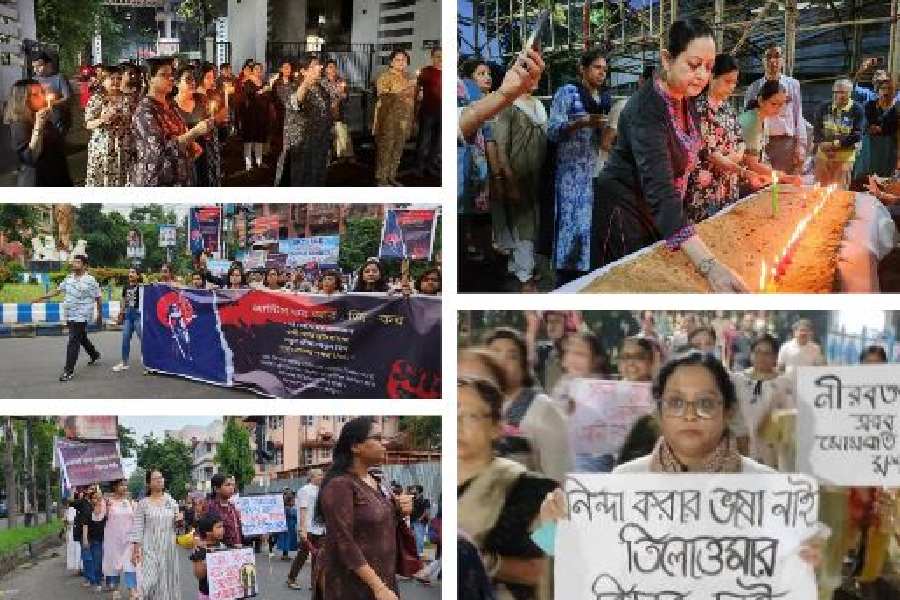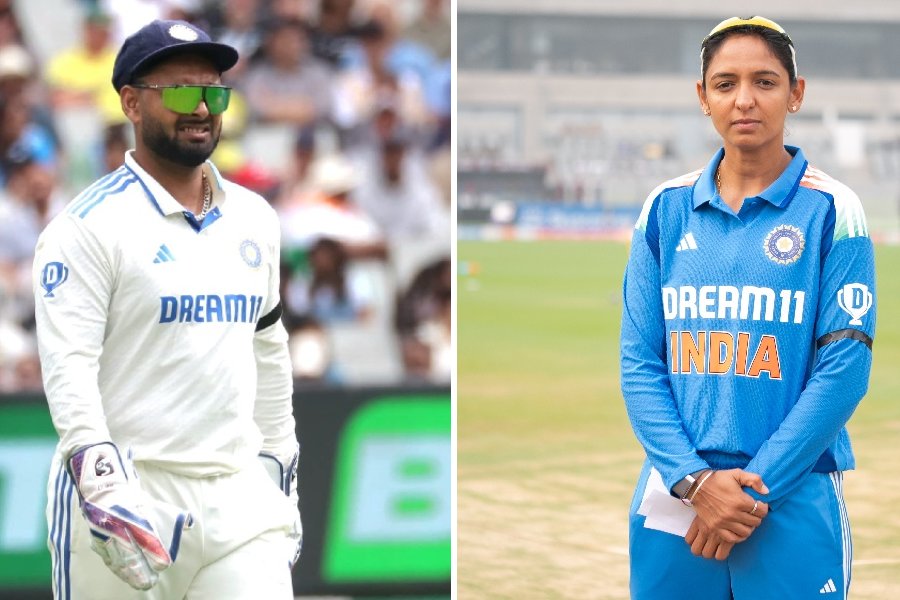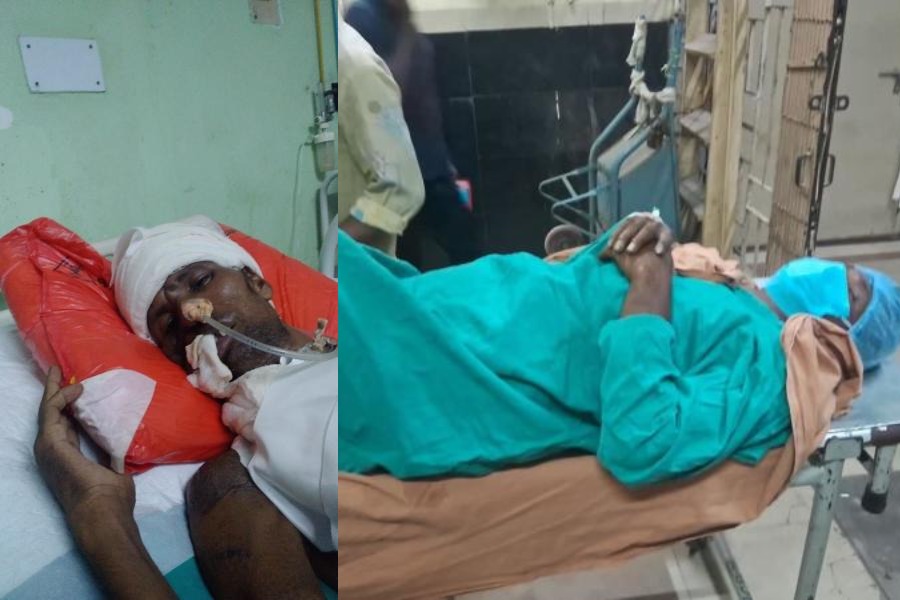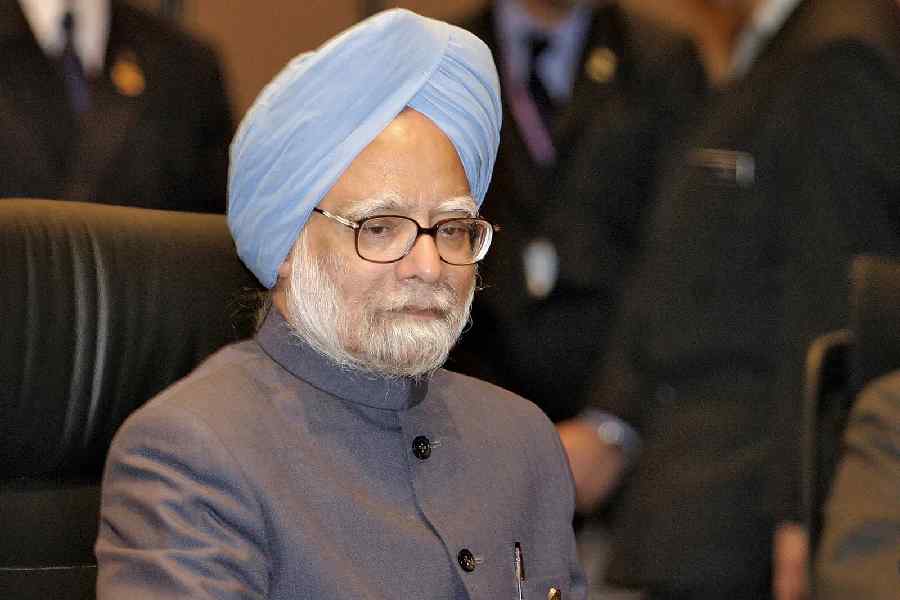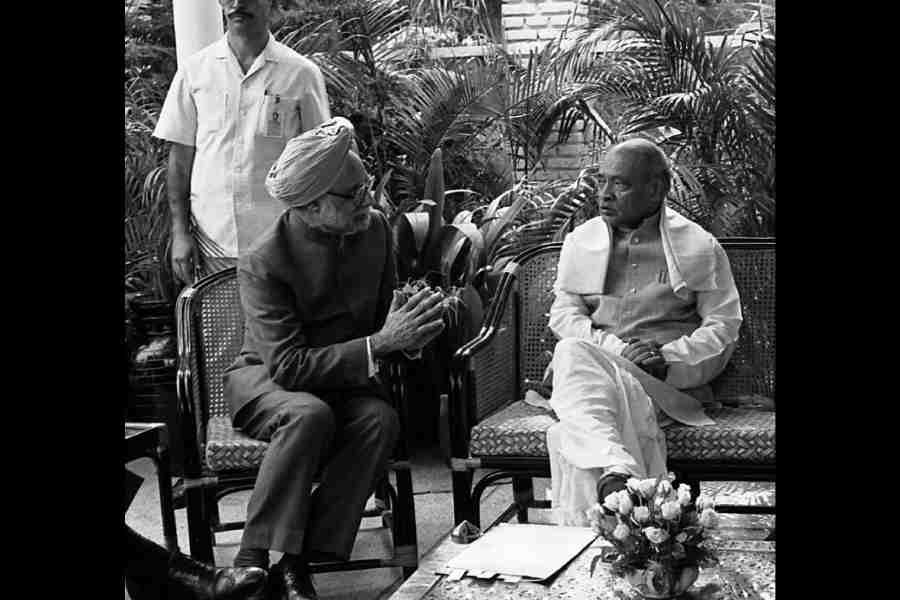A pall of gloom has spread over the city. Residents are unable to celebrate, unable to enjoy, unable to think of anything but the horror at RG Kar Medical College and Hospital. The sheer number of people taking to the streets in protest has been overwhelming, leading many to marvel at the united zeal of the multitude, without any political agenda or party colour, to seek betterment in society.
Months from now, the marches may dwindle but if this collective momentum can be sustained, it can achieve extraordinary things. From petitioning for judicial or administrative reforms to clean the system to simply gathering on Sunday mornings to clean the streets, residents can think of ways in which the positive energy of the moment can be channelled into new and lasting goals.
Together we stand
“I know a family, every member of which has been taking to the streets every day. Another couple is aged, ailing, and unable to walk long distances. They too joined a march for a bit and accompanied the group by car the rest of the distance. Since everyone has united for this cause, why not create a lasting memorial for the doctor,” asks Asoke Dalui, a resident of EE Block.
He proposes that everyone who has marched plant a banyan tree. “A park can be designated for this, and everyone who feels for the cause may plant a tree. The park can be named Tilottoma, Abhaya, or whatever she is being called,” says Dalui. “We can’t count how many people walked — so imagine how many trees could be planted. The other day, I visited an old age home where nonagenarians, unable to walk, recited poems of protest. Surely, they too can plant trees.”
“Gyan baatnewaale bahut hain, kaam karnewaale kam. But people are charged up now and if they are united, bureaucrats will work well,” says Ashish Mittal of BC Block. The philanthropist suggests forming volunteer groups to help people in need. He recalls how, during the pandemic, groups reached out to help people. “But they must be apolitical and non-monetary,” he says.
Rajiv Roy of AJ Block has always tried to right a wrong but fallen short as he was alone. “I want to intervene if I see an auto driver harassing passengers or if someone is hurting a street dog but I get outnumbered and overpowered. I have even approached the police for some kind of authority card to empower me to book such offenders but on the individual level, nothing could be done. As a group, we will have a voice,” he says.
“The non-political uprising we are seeing is healthy for a democratic society,” he says. “Then our elected officials will know their performance appraisal is being done by the people at large.”
One for all, all for one
Shanoo Sarkar, a resident of Shukhobrishti, wants a volunteer group to help with the needs of special people and street animals. “Let’s not wait for the government, but do it ourselves. A group to help special people travel, one to feed street animals, or to set up free clinics for the needy. But absolute power corrupts absolutely so checks need to be kept somehow even on this group,” says Sarkar.
Renu Verma, a resident of CL Block, says the last time the masses took to the streets was during the Swachh Bharat Mission. “We should not stop protests till we get justice. But after that, we cannot lose steam. We can form groups to clean the streets, teach girls self-defence, to share tips on personal safety and the like,” she says.
A DB Block resident has had enough of the broken roads and feels individual complaints will do no good. “Forget obscure bylanes, even the street to City Centre is so bad that we can neither drive nor walk on them. We need to approach the authorities in the numbers that we are showing in marches. Only then will they take us seriously,” she says.
Be the change
Senior pulmonologist Sushmita Roychowdhury feels people have to find how they can be there for each other in small ways. “Volunteer in a field you are good at. For example, I am a doctor. So I can take two hours out of my week or my fortnight and help those who cannot afford to seek medical help or those who have perhaps gone somewhere for consultation and are confused about the next course of treatment,” says the resident of a New Town housing estate.
She advocates a day in the week for everyone to help the elderly or the underprivileged.
“My daughter is a medical student down south. As part of their community medicine training, each student is allotted an underprivileged family to adopt. They meet the respective families once a week, share a meal with them and check them for ailments. Sometimes they form such a bond that they go beyond the call of duty. My daughter even helps out a Class IX student in the family over WhatsApp if she has problems with her science homework,” Dr Roychowdhury says. She points to the practice abroad among young people to help clean the gardens or the houses of elderly people. “We can offer to take the neighbour’s son or daughter to the exam venue if there is no one in the family to accompany him or her. Maybe a bus can be hired by the community to take all the NEET or JEE aspirants from a locality to the exam centre,” she adds, urging for a community fund to be set up which could be used to give scholarships to financially challenged, meritorious students and in other exigencies.
Samaresh Das, who had emerged as a community leader in New Town during the Covid times under the banner of a philanthropic trust called New Town Forum and News, has opened a Facebook community page called Bengal Together. “It is an apolitical platform for like-minded positive people to stay in touch with each other. Initially it will help to bridge the knowledge gap between towns and villages across the state. We will subsequently figure out how to channel our energy, be it to fight environmental pollution or for any social issue,” he says, doffing his hat to the women who took the lead in organising the midnight vigil under the Biswa Bangla Gate on Independence Day-eve. “The spate of apolitical protests reminds me of the role Bengal played in the freedom str ug gle. That fire is still alive in the community, especially the women, it seems,” Das said.
Covid rerun
Das is no alien to good Samaritan actions. “Our band of NTFN volunteers had worked relentlessly in Covid times, supplying oxygen cylinders and oxymeters or arranging for ambulances to ferry Covid patients to hospitals or distributing food to building site caretakers and migrant labourers. Some of the initiatives we had facilitated, like Sufal Bangla carts and mobile bank ATMs coming to complexes in those days, are still in continuation.”
Basab Basak, a former secretary of the FE Block residents’ body, too harks back to the spirit of community service seen during the pandemic. “We helped Covid patients in every which way, from oxygen supply to hospitalisation.” Another pre-Covid initiative was a block women’s group to visit and chat with elderly neighbours staying alone every week. “But it did not last.”
He is full of awe at how his neighbours walked in the rain for a protest march organised in the block last Saturday. “People have realised that theirs is the ultimate power. This confidence is great news for democracy. Hope they make the effort to go to vote without getting scared henceforth,” said the teacher in a government-aided school who had contested in the civic polls on a Left Front ticket.
“If Mohun Bagan and East Bengal can come together, we all can,” says human rights activist Sharmistha Mukherjee. “I have been doing social work for years but seldom found people by my side. This time I think it will be different.”
Mukherjee would like to lead the masses to reform the judiciary. “Corruption has seeped into every sector. I know of lawyers who take bribes from the opponent party to lose the case for their client. Where will people go if the judicial system is this corrupted?” says the DB Block resident. “I also want capital punishment for cases like rape. I used to live in Saudi Arabia and have seen how punishments like executions and amputations deter people from breaking laws. That’s what our society seems to need.”
Chirasree Mitra, an AD Block resident, calls for people to hold on to their anger. “The first reaction to something like this is revenge, but it’s not healthy or constructive. We shouldn’t look at it as a single incident. And whatever the result of this case, we shouldn’t stop our collective pursuit,” says the lady whose parents are both graduates of RG Kar
She proposes two things for the people to do. The first is to create awareness among adolescents. “We talk to our kids about studies and careers, but do we talk to them about gender and sexuality?” asks Mitra, a psycho-social counsellor.
“Adolescents know everythingfrom friends and the internet andhave opinions,” Mitra says. Theyhave urges that are natural for theirage but have to be dealt with carefully. This cannot be blamed on the government — this is something we mustdo at home.”
She also asks people to lead a massmovement against the system. “Don’tjust say ‘we want justice’; say ‘wewant to change the system’. Scams inration distribution, school education,and now higher education…. RG Karis the tip of the iceberg and we canonly hope West Bengal doesn’t sinklike the Titanic. The time has cometo say, dori dhore maro tan, raja hobekhan khan.”
Manimoy Saha, who was part ofthe AE Block march on Sunday, believes in the power of people. “The RGKar incident was terrible, but it hasbrought us together. We called ourwalk Bibek Pada Yatra since if ourconscience awakens, we will stand upto all evils,” said the president of AEBlock Samaj Kalyan Sangha.
He added that one needed to be proactive. “From our association itself, we have installed solar panels on the community hall’s terrace. Cars were forcefully parking on our footpath so we spent our own money to build barricades there. If this is what a block association can do, imagine what the entire population can do together!”

